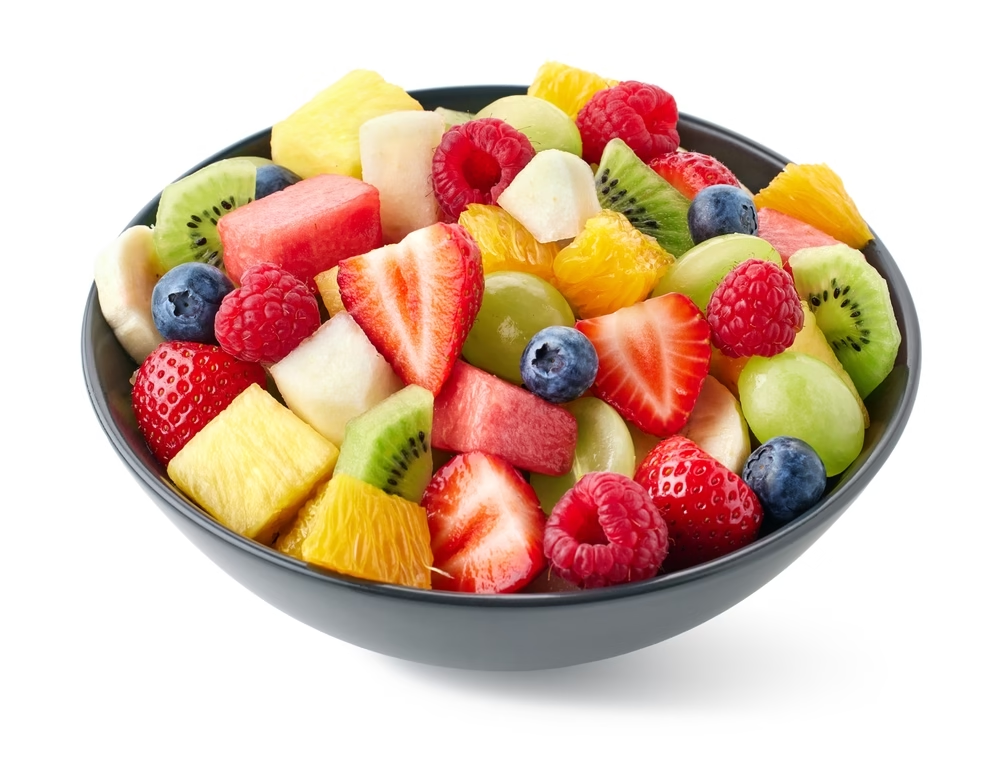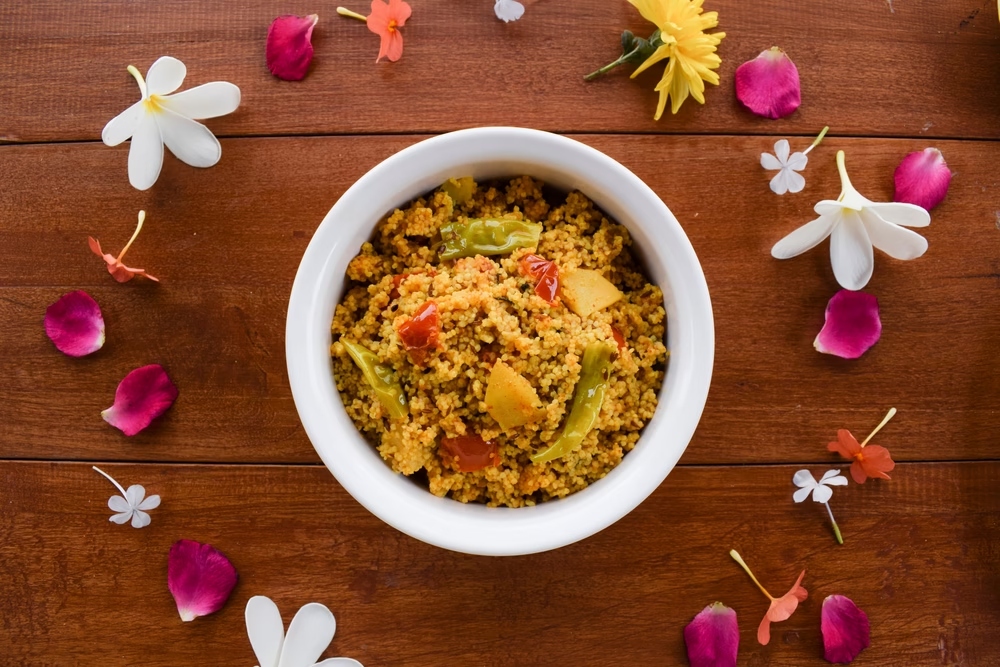Navratri is a time of devotion and celebration, when many people follow traditional fasting. But for those suffering from heart problems, the nine-day diet can feel challenging. Is it safe? What should they eat? How can they balance their devotion without harming their heart health? If not done right, Navratri fasting can increase unnecessary stress on your heart.
You may be wondering how your special diet needs fit into the traditional fasting. In fact, with the right strategy and a little know-how, you can actually go into healthy Navratri fasting mode without harming your heart. This blog is your guide to providing you with all the information and tips that will help you ensure a healthy and safe Navratri.
Table of Contents
ToggleWhy Navratri Fasting Matters for Your Heart
For many, Navratri fasting is for cleansing the soul and detoxing. But from a health standpoint, it’s a big change in dietary habits that can directly affect your heart. Poor choices can also cause a sudden surge in your blood sugar, blood pressure, and cholesterol levels, all of which are risk factors for heart attacks.
1. Role of Metabolism:
The change in diet that occurs during fasting impacts metabolism. Consuming high-fat, fried, and sweet foods can contribute to weight gain and place more strain on the heart, even over a short period.
2. Balancing Electrolytes:
Improper fasting can cause dehydration and an imbalance in electrolytes such as potassium and sodium that are vital to maintaining a balanced heart rhythm.
According to Garima Arora, a leading Nutrition expert at SAAOL Heartcare Delhi, “A sudden switch to a diet rich in carbohydrates like potato, sabudana, or fats like fried aloo chips, pakore, namkeen mixtures, which many traditional ‘fasting foods’ are, can be dangerous for heart patients. The key is to make mindful choices, eat less, and prioritize hydration and a fibre-rich, balanced diet.”
What to Eat for Healthy Navratri Fasting
Most traditional Navratri foods are tasty but not heart-friendly. Pakodas made from kuttu ka atta, sabudana vada, and deep-fried aloo chaat are standards, but they come with high amounts of saturated fat and calories.

Here’s a list of heart-healthy alternatives to the usual ones:
- Switch to healthier fats: Instead of deep frying, try air-frying or baking with no visible oils and fats like ghee or olive oil.
- Pick complex carbs: Swap simple carbs, such as sabudana, with complex carbohydrates such as those present in amaranth flour (rajgira atta) and kuttu ka atta, bowl of whole fruits, etc.
- Focus on protein and fiber: Add sources like low-fat paneer and yogurt in moderation to keep you satiated and aid the regulation of your blood sugar levels.
Foods to Avoid: Critical Rules for Navratri Fasting with Heart Disease
For heart health, the strictest rules for Navratri fasting involve eliminating deep-fried snacks, excessive salt, and high-sugar sweets. These common vrat foods contribute to elevated blood pressure, unhealthy cholesterol levels, and unnecessary strain on the cardiovascular system.
- Deep-Fried Snacks: This includes Sabudana Vada, Kuttu Puri, Singhara Puri, and any type of fried chips (potato or banana). These are high in saturated and trans fats that spike bad cholesterol.
- High-Sugar Desserts: Limit items like Halwa made with excessive ghee and sugar, or sugary kheer. Excessive sugar can lead to weight gain and elevated triglyceride levels.
- High-Sodium Products: Limit regular salt and avoid packaged fasting namkeens or chips. High sodium intake drastically increases blood pressure.
- Overconsumption of Simple Carbs: Limit heavy portions of pure starch like Sabudana (tapioca pearls) to prevent sudden blood sugar spikes.
Scientific Evidence: The Link Between Fasting and Heart Health
While traditional beliefs support fasting, modern science has also explored its benefits, though mostly in the context of intermittent fasting. A 2023 study published in The Journal of Clinical Medicine found that fasting can lead to improvements in markers of metabolic health. The research found that fasting could be the key to leveling off blood pressure, improving insulin sensitivity, and spiking a significant drop in triglycerides. But these benefits have been seen with structured, controlled fasting protocols – not the Navratri diet for heart patients.
Healthy Navratri Fasting Tips for Heart Patients
Dr. Bimal Chhajer, founder of SAAOL Heartcare, emphasizes the importance of a structured diet plan. “Heart patients should never fast without a plan. And they should never stop/skip their heart-related medicines, they should stay calm, and they need to maintain sustained energy and not unnecessarily overburden/overdo fasting for self”
Here is a straightforward, step-by-step guide:
- Start your day right: Begin with a glass of warm water.
- Breakfast: Take fruits and vegetables such as guava, pear, cucumber, carrot or apples.
- Mid-morning: Take a glass of lemon water and low-fat paneer
- Lunch: A bowlful of samak khichdi full of colorful vegetables with curd (optional) and made with zero oil.
- Evening snack: Tea along with roasted makhana (foxnuts).
- Dinner: A bowl of pumpkin soup or mixed vegetable soup.
Expert Tips for Navratri Fasting for Heart Patients
Garima Arora, Head – Nutrition from SAAOL Heartcare, shares some important tips that you need to keep in mind.
- No prolonged fasting: Do not fast for a longer time if it doesn’t suit your body to avoid any bloating or gas.
- Keep well hydrated: Make sure you drink enough water during the day.
- Keep Salt & Sugar Intake Down: Too much salt can cause water retention and raise your blood pressure. Do not take too much refined sugar to regulate blood sugar levels.
- Skip Fried Foods: Stay away from deep-fried snacks such as sabudana vada and pakoras. Instead, I prefer steaming and airfrying.
- Monitor Your Health: Always keep an eye on your vitals such as blood pressure and blood sugar levels.
- No Night-Binging: Do not binge eat at night with unhealthy fast food for navratri
Conclusion
The Navratri diet for heart patients doesn’t have to be a source of stress. With thoughtful decisions, listening to your body, and following the guidance of SAAOL Heartcare Delhi heart specialists, you can celebrate this blessed event with both spiritual devotion and a healthy heart. Remember, the true essence of healthy Navratri fasting is a detoxifying and purifying process, not an excuse to indulge in unhealthy, high-fat foods. By taking care of your health, you are not only nurturing your body but also respecting your devotion.
Frequently Asked Questions (FAQs)
Q: Can a heart patient keep the fast throughout these nine days?
A: For the most part, it is safe, but they shouldn’t do so without guidance from a doctor and follow a healthy Navratri diet for heart patients.
Q: Are fruits safe for heart patients while fasting?
A: Yes, pretty much all fruits are safe and good for you because of their high fiber content. But restrict high-sugar fruits such as bananas and don’t juice the fruits.
Q: Can kuttu ka atta be consumed in healthy Navratri fasting?
A: Yes, kuttu ka atta is fibrous but not deep-fried puris. Choose rotis or cheelas instead.
Q: What drinks are considered best to consume during Navratri fasting for heart patients?
A: Buttermilk, coconut water, and lemon water make for great hydrating beverages and are good for the heart, too.
Q: What if I get light-headed or sick during the fast?
A: Break your fast immediately and consult a doctor. Do not overwork your body.


